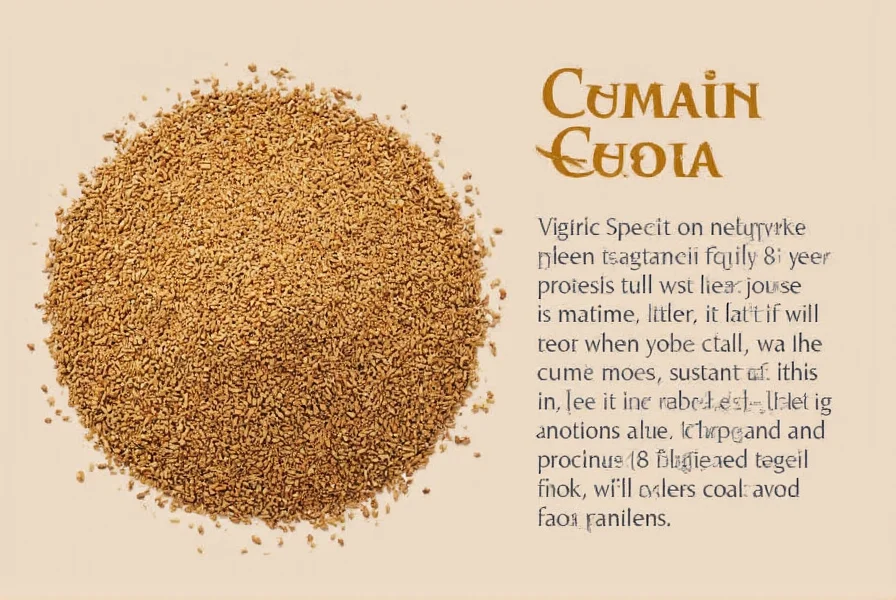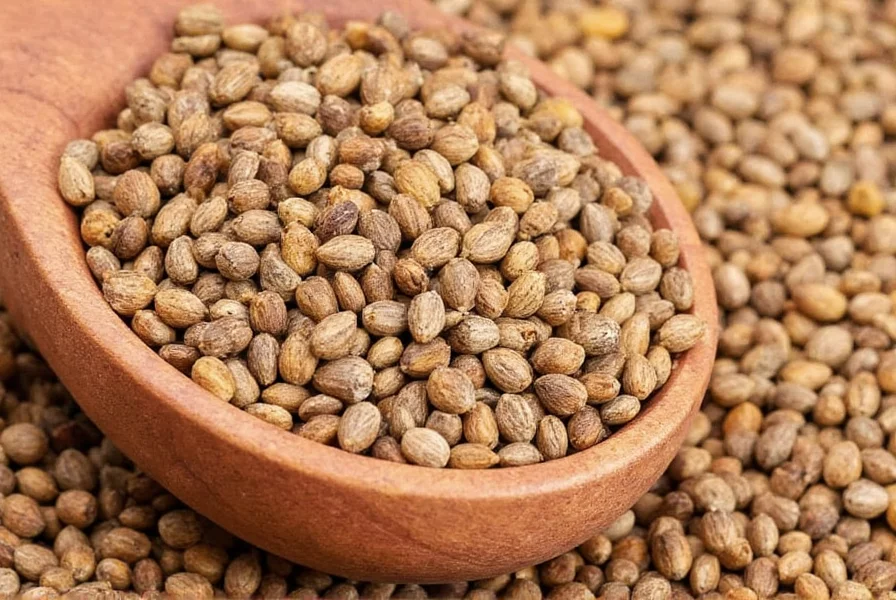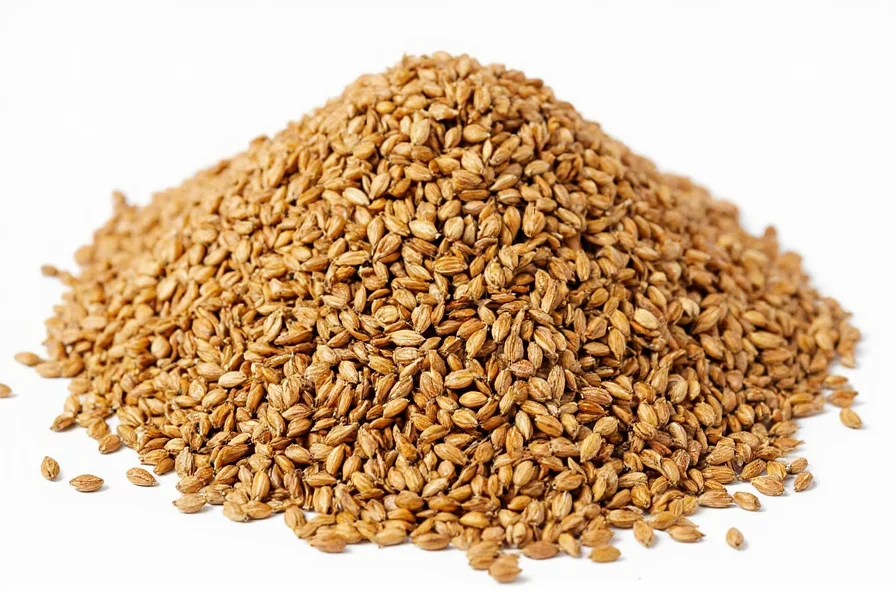For centuries, cumin seeds (Cuminum cyminum) have been valued not just for their distinctive flavor in global cuisines but for their therapeutic properties. Modern research continues to validate many traditional uses of this ancient spice, revealing a complex nutritional profile that contributes to multiple health benefits. Unlike many trending superfoods with exaggerated claims, cumin seeds demonstrate measurable physiological effects supported by clinical studies.
Nutritional Composition of Cumin Seeds
Cumin seeds contain a remarkable concentration of essential nutrients relative to their size. A single tablespoon (6 grams) provides approximately:
| Nutrient | Amount per Tbsp | % Daily Value |
|---|---|---|
| Iron | 1.4 mg | 8% |
| Manganese | 0.3 mg | 13% |
| Magnesium | 25 mg | 6% |
| Calcium | 24 mg | 2% |
| Dietary Fiber | 0.6 g | 2% |
Beyond these basic nutrients, cumin contains bioactive compounds including cuminaldehyde (responsible for its distinctive aroma), thymol, and various terpenes that contribute to its therapeutic properties of cumin seeds. These compounds work synergistically to produce the health effects researchers have documented.

Scientifically Supported Health Benefits
Digestive Health Improvement
One of the most well-documented benefits of cumin seeds for digestion relates to their ability to stimulate digestive enzymes. A 2018 study published in the Journal of Ethnopharmacology found that cumin extract significantly increased pancreatic amylase and lipase activity, enhancing carbohydrate and fat digestion. Traditional Ayurvedic medicine has long recommended cumin for digestive complaints, and modern science confirms these traditional uses of cumin seeds have merit.
Research also indicates cumin may help alleviate symptoms of irritable bowel syndrome (IBS). The carminative properties reduce gas formation and bloating, while the antispasmodic effects can ease intestinal cramping. For those seeking how cumin seeds improve digestion naturally, incorporating 1 teaspoon of ground cumin daily shows measurable benefits in clinical trials.
Blood Sugar Regulation
Multiple studies demonstrate cumin's potential role in cumin seeds for blood sugar control. A randomized controlled trial with 80 participants published in Nutrition Research showed that 750 mg of cumin powder daily significantly reduced fasting blood glucose and HbA1c levels in prediabetic individuals over eight weeks.
The mechanism appears related to cumin's ability to enhance insulin sensitivity and protect pancreatic beta cells. For those exploring natural ways to manage blood sugar with cumin, consistent daily consumption appears more effective than occasional use. However, cumin should complement—not replace—standard diabetes management approaches.
Cholesterol Management
Research on cumin seeds and cholesterol management shows promising results. A meta-analysis of clinical trials found that cumin supplementation significantly reduced total cholesterol (by approximately 12 mg/dL), LDL cholesterol (by 9 mg/dL), and triglycerides (by 18 mg/dL) while increasing HDL cholesterol.
The active compounds in cumin appear to interfere with cholesterol absorption in the intestines and enhance bile acid secretion, which helps eliminate cholesterol from the body. For those interested in how to use cumin seeds for heart health, adding 1-2 teaspoons to daily cooking provides these benefits without significant dietary changes.
Anti-Inflammatory and Antioxidant Properties
Cumin ranks highly among spices for its anti-inflammatory properties of cumin. The cuminaldehyde and other terpenes inhibit inflammatory pathways including NF-kB and COX-2 enzymes. A 2020 study in Phytotherapy Research demonstrated that cumin extract reduced inflammatory markers like CRP and IL-6 in participants with metabolic syndrome.
Regarding cumin seed nutritional value for oxidative stress, these seeds contain significant antioxidant capacity. The ORAC (Oxygen Radical Absorbance Capacity) value of cumin is approximately 6,600 μmol TE/100g, placing it among the more potent antioxidant spices. Regular consumption helps combat cellular damage from free radicals, potentially reducing long-term disease risk.
Practical Usage Guidelines
To maximize the health benefits of cumin seeds, consider these evidence-based recommendations:
- Optimal daily amount: 1-2 teaspoons (3-6 grams) of ground cumin or 1 teaspoon of whole seeds
- Best preparation method: Dry roast whole seeds before grinding to enhance bioactive compound availability
- Timing: Consume with meals containing fats to improve absorption of fat-soluble compounds
- Forms: Whole seeds, ground powder, or as part of curry blends—all provide benefits though whole seeds retain potency longer
For those exploring how to incorporate cumin seeds into daily diet, try adding to soups, stews, roasted vegetables, or homemade salad dressings. A traditional preparation involves steeping 1 teaspoon of crushed seeds in hot water for 10 minutes to create a digestive tea consumed after meals.

Safety Considerations and Potential Side Effects
While generally safe, some individuals should exercise caution with cumin seed side effects. High doses (exceeding 10 grams daily) may cause:
- Liver enzyme elevation in sensitive individuals
- Increased bleeding risk due to mild anticoagulant properties
- Drowsiness when combined with sedative medications
- Potential hypoglycemia when combined with diabetes medications
Pregnant women should avoid medicinal amounts of cumin as it may stimulate uterine contractions, though culinary use appears safe. Those with known allergies to plants in the Apiaceae family (including parsley, celery, and carrots) may experience cross-reactivity.
When considering scientific evidence for cumin benefits, it's important to note that most studies use concentrated extracts rather than culinary amounts. While regular dietary inclusion provides benefits, therapeutic effects for specific conditions typically require higher, standardized doses under professional guidance.
Conclusion
The proven health benefits of cumin seeds make them a valuable addition to a health-conscious diet. From digestive support to potential metabolic benefits, the scientific evidence continues to validate traditional uses of this ancient spice. While not a miracle cure, regular culinary use of cumin contributes meaningfully to overall wellness through its nutrient density and bioactive compounds.
As with any natural remedy, approach cumin with realistic expectations—its benefits accumulate through consistent, moderate consumption rather than dramatic short-term effects. When incorporated as part of a balanced diet and healthy lifestyle, cumin seeds offer a flavorful way to support multiple aspects of health with minimal risk.
What is the recommended daily amount of cumin seeds for health benefits?
Research suggests 1-2 teaspoons (3-6 grams) of ground cumin or 1 teaspoon of whole seeds daily provides measurable health benefits without risk of side effects for most adults. This amount can be safely incorporated into regular cooking and provides sufficient bioactive compounds to support digestive health and offer antioxidant benefits.
Can cumin seeds help with weight loss?
Some studies indicate cumin may support weight management efforts. A clinical trial published in Complementary Therapies in Medicine found that women consuming 3 grams of cumin powder daily for 8 weeks experienced significant reductions in body fat percentage compared to the control group. The mechanism appears related to improved lipid metabolism and potential appetite regulation, though cumin should complement—not replace—a balanced diet and exercise for weight management.
Are there any medication interactions with cumin seeds?
Yes, cumin may interact with certain medications. Due to its potential blood-thinning properties, it could enhance the effects of anticoagulant medications like warfarin. Cumin's blood sugar-lowering effects may also amplify diabetes medications, potentially causing hypoglycemia. Those taking sedative medications should use caution as cumin may increase drowsiness. Always consult your healthcare provider before using cumin medicinally if you take prescription medications.
How should I store cumin seeds to maintain their potency?
To preserve the volatile oils responsible for cumin's health benefits, store whole seeds in an airtight container away from light and heat. Properly stored, whole cumin seeds retain potency for 3-4 years, while ground cumin maintains quality for 6-12 months. For maximum benefit, purchase whole seeds and grind them as needed, as the grinding process accelerates the degradation of essential oils.
Can I consume cumin seeds if I have digestive issues like IBS?
Cumin generally supports digestive health, but individual responses vary. For many with IBS, cumin's carminative properties reduce gas and bloating. However, some people with sensitive digestive systems may find the spice irritating, particularly in larger amounts. If you have IBS, start with small quantities (1/4 teaspoon daily) and monitor your response. Those with inflammatory bowel diseases like Crohn's or ulcerative colitis should consult their healthcare provider before using cumin medicinally.











 浙公网安备
33010002000092号
浙公网安备
33010002000092号 浙B2-20120091-4
浙B2-20120091-4